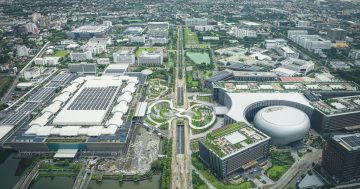Thailand is taking bold strides to position itself as a leading hub in the global electronics industry with the announcement of THECA 2025 – Thailand Electronics Circuit Asia. Spearheaded by the Thailand Board of Investment (BOI), in collaboration with the Thailand Printed Circuit Association (THPCA) and the Hong Kong Printed Circuit Association (HKPCA), the event aims to accelerate the country’s transformation into Southeast Asia’s center for electronics manufacturing and innovation.
Scheduled to take place from August 20 to 22, 2025, at Halls EH99–100, BITEC, Bangkok, THECA 2025 will double its exhibition space to 12,000 square meters. The event is expected to welcome over 500 leading companies and attract more than 7,000 visitors and investors from around the globe.
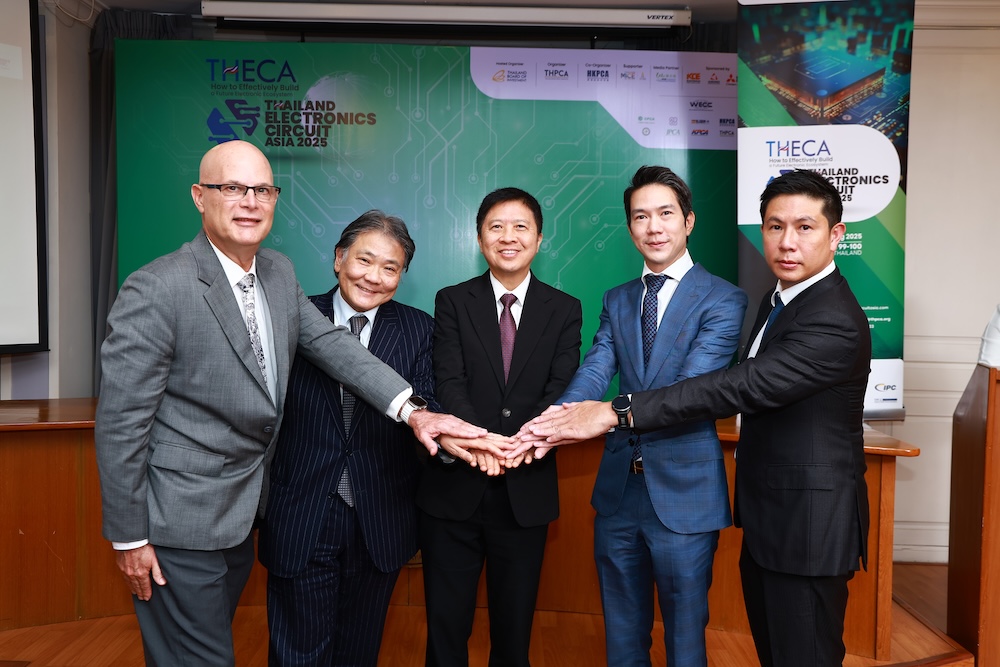
Amidst shifting global supply chains and a growing trend to diversify production bases beyond China, major electronics manufacturers are seeking alternative locations that offer resilience, accessibility, and integrated support systems. Thailand stands out as a strategic choice, especially in the fields of Printed Circuit Boards (PCBs) and Printed Circuit Board Assembly (PCBA) — key components for EVs, IoT, AI, medical devices, and smart automation systems.
Mr. Narucha Ruchuphan, Deputy Secretary General of the BOI and host of THECA 2025, emphasized the government’s strategic focus on electronics as one of five key industries under the “Thailand 4.0” and “Industry 5.0” initiatives. He noted that Thailand is already the leading PCB production base in ASEAN and among the global top contenders. The country aims to expand its global PCB market share from 4% to 10% within the next 3 to 5 years.
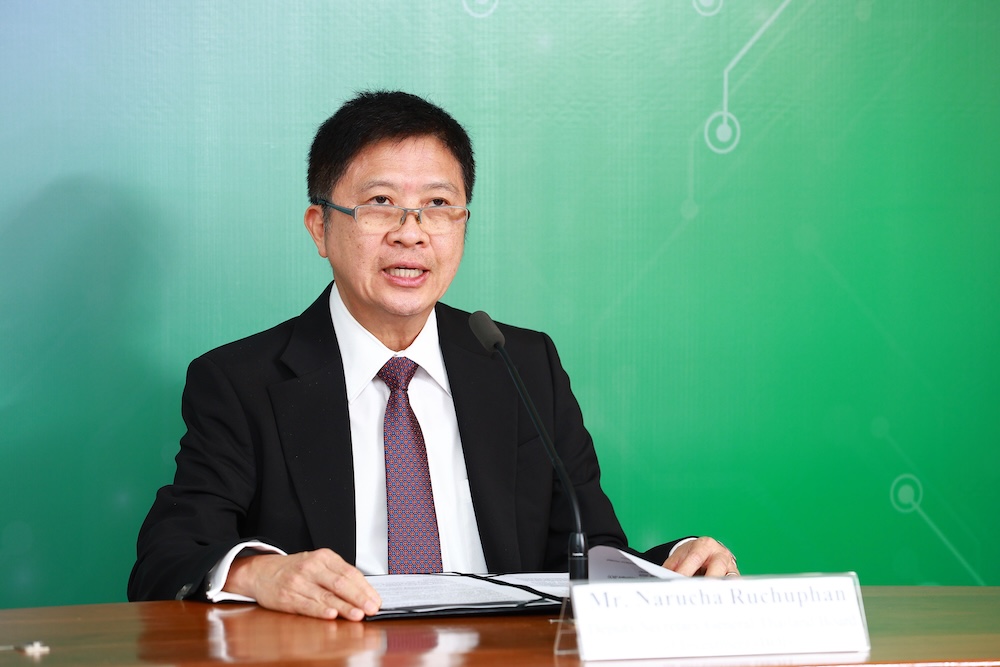
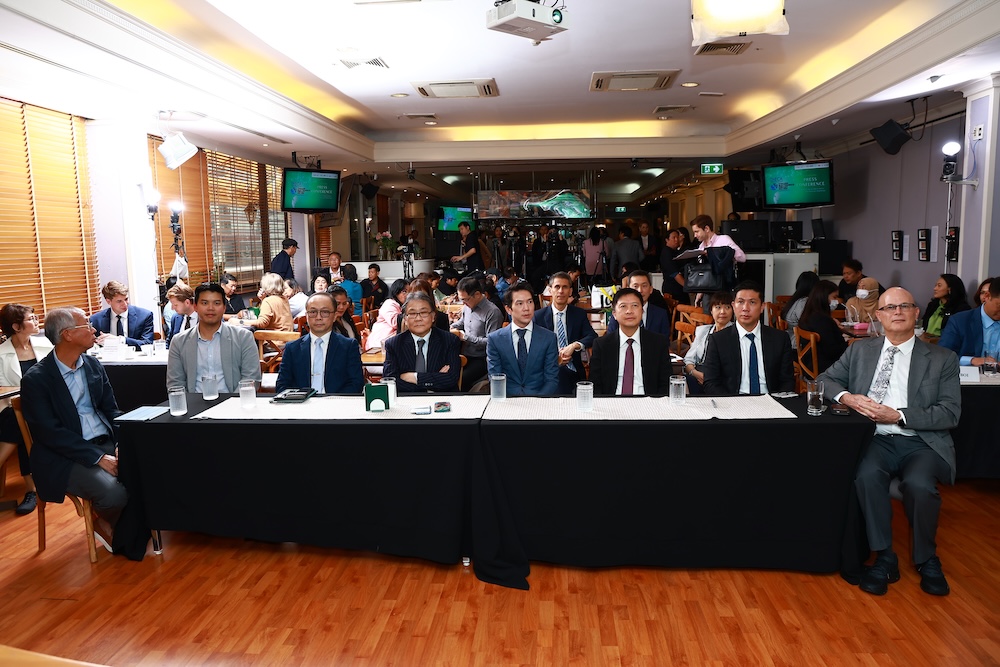
The global PCB market is projected to grow at a CAGR of 6.2%, reaching a value of USD 26.8 billion by 2029. Currently, 80% of Thailand’s PCB output is exported to major markets such as China, the U.S., and Japan, demonstrating the country’s growing influence in the global supply chain. In alignment with ESG standards and the 2050 Net Zero Emission goal, Thailand is also promoting green industry development, making it an attractive destination for multinationals seeking sustainable manufacturing.
“THECA is more than just an exhibition. It is a strategic platform that connects the electronics ecosystem, enabling Thailand to emerge as a global technology manufacturing center through cross-sector collaboration,” said Mr. Narucha Ruchuphan.
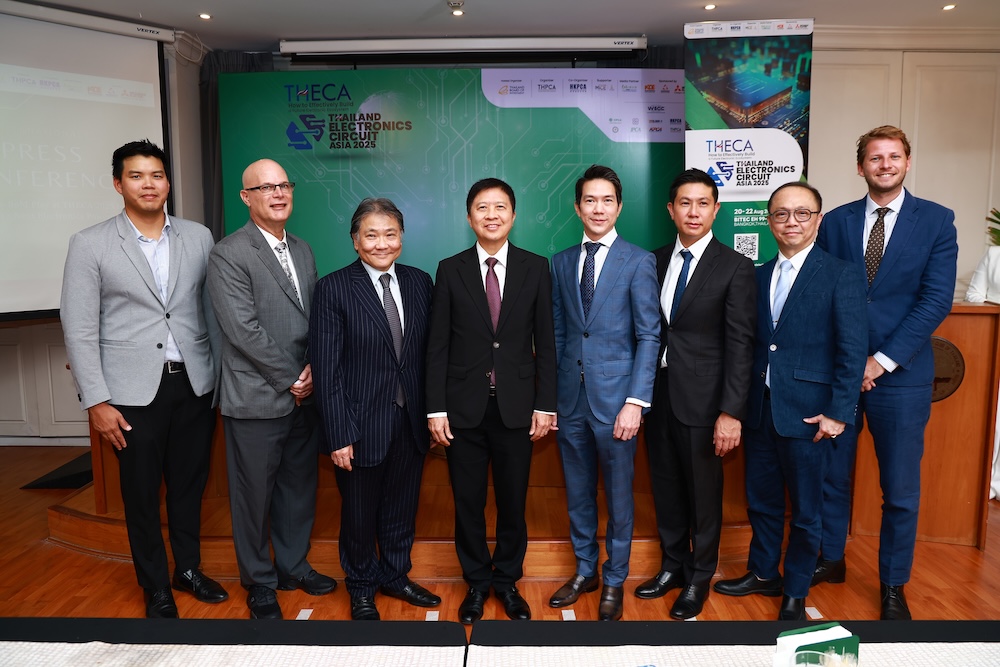
Supported by the Thailand Convention and Exhibition Bureau (TCEB), KCE Electronics PCL, Auromex Co., Ltd., and Mitsubishi Electric Factory Automation (Thailand) Co., Ltd., the event is backed by strong public-private partnership.
Mr. Pitharn Ongkosit, President of THPCA and organizer of THECA 2025 highlighted that Thailand’s printed circuit board (PCB) exports are expected to rise to 10-15% of the global market this year, equivalent to approximately USD 6-8 billion. The growth is primarily driven by increasing demand from the expansion of Electronics Automotive technology, the rollout of 5G networks, and the adoption of Internet of Things (IoT) applications, along with the rapid growth of electric vehicles (EVs) and automation in manufacturing industries.
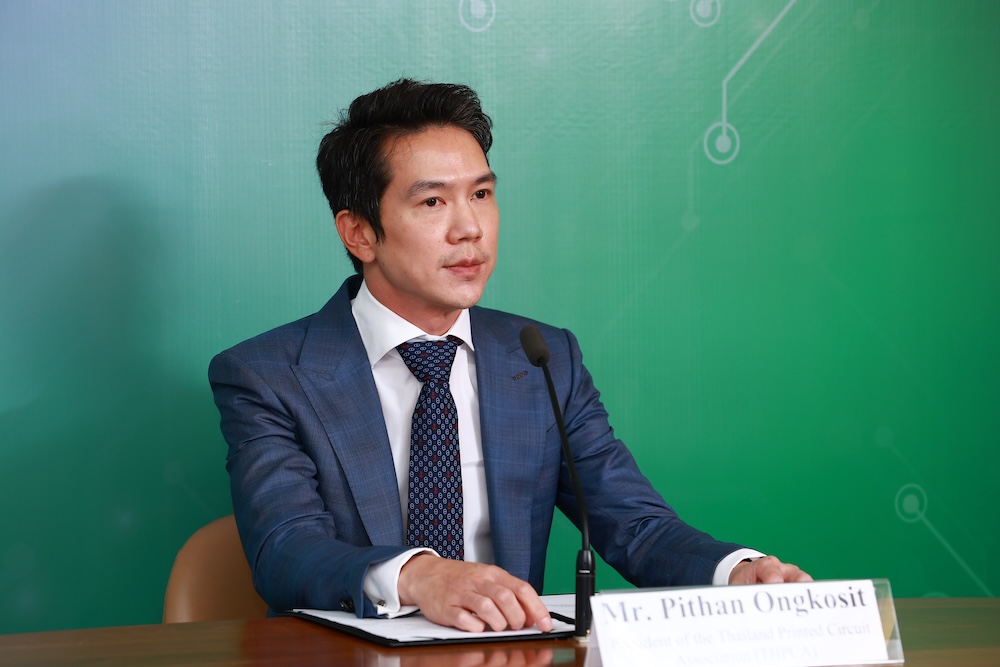
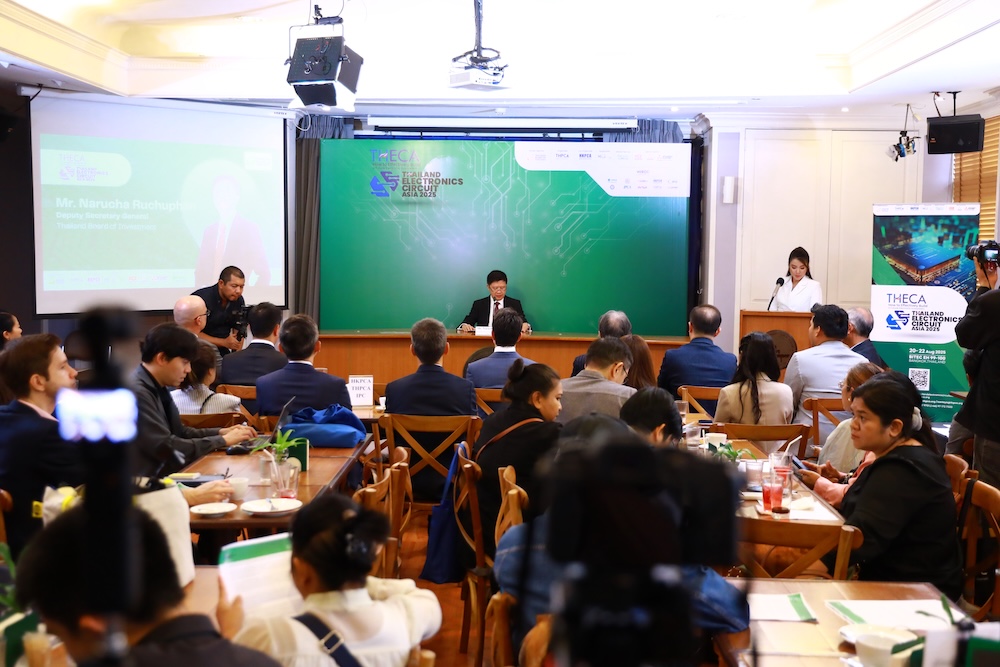
Currently, the Asia-Pacific (APAC) region leads global consumption of printed circuit boards (PCBs), accounting for 88% of the total market. As the backbone of the advanced electronics industry, PCBs, PCBA (Printed Circuit Board Assembly), and EMS (Electronics Manufacturing Services) are critical in delivering high-performance solutions for modern technologies. However, the industry faces significant challenges, including increasingly stringent environmental regulations and rising performance requirements — particularly regarding high-temperature durability, voltage resistance, and miniaturization.
To remain globally competitive, manufacturers are driving innovation through advanced technologies such as 3D printing for rapid prototyping, automation for precision assembly of complex circuits, and the use of sustainable, high-reliability materials. These advancements enable the production of advanced electronics components including high-density interconnect (HDI) boards, rigid-flex circuits, IC substrates, power electronics modules, RF/microwave boards, and automotive-grade control units. Such components are vital to meet the evolving demands of electric vehicles (EVs), ADAS (Advanced Driver-Assistance Systems), autonomous driving, industrial automation, and smart connected devices.
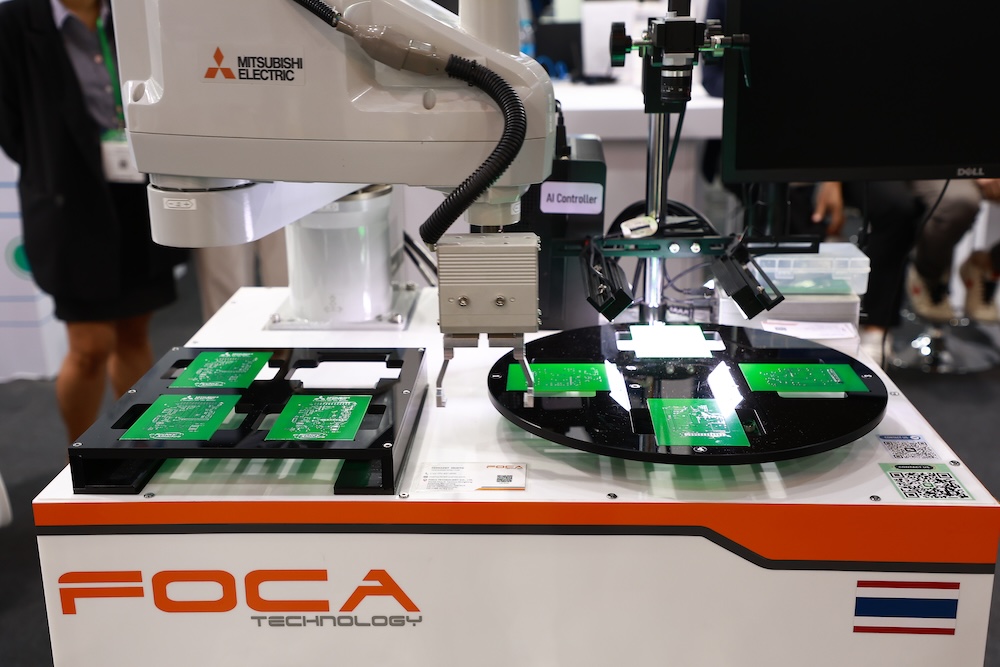
Under the theme “How to Build Effectively a Future Electronic Ecosystem” THECA 2025 is built upon four strategic pillars:
- Connected Ecosystem – Promoting collaboration across regional and global supply chains, linking PCB and PCBA manufacturers with major technology players and SMEs.
- Smart & Green Manufacturing – Advancing environmentally responsible production and ESG compliance, making Thailand a smart factory hub in electronics.
- Talent & Innovation Hub – Developing workforce capabilities through training programs and partnerships between academia and industry, supporting R&D in advanced electronics.
- New Business Opportunities – Facilitating trade and investment through B2B matchmaking and expanding international market access for Thai companies.
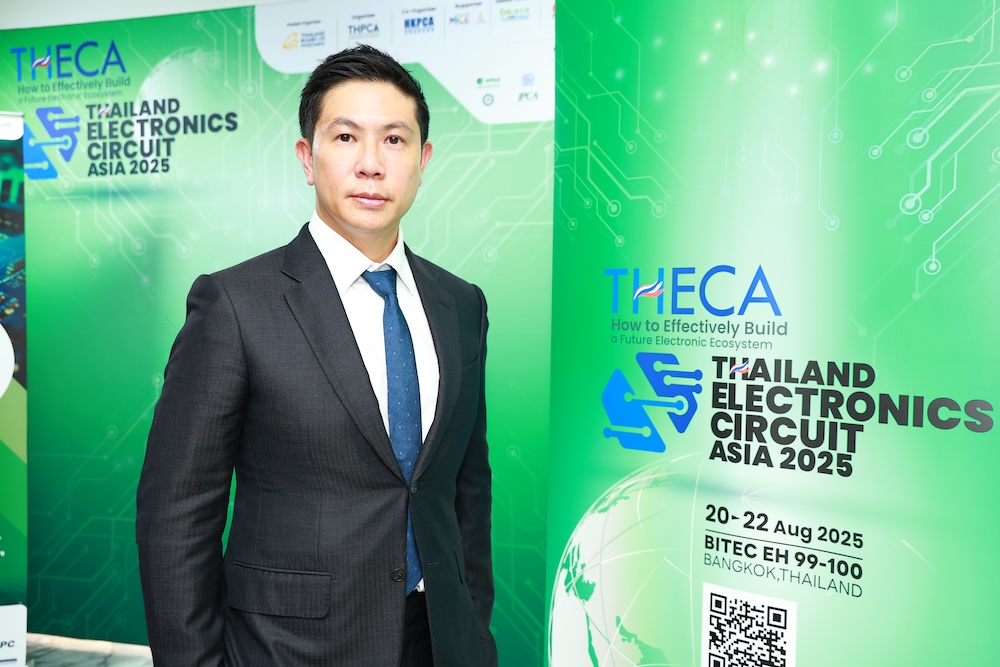

Mr. Swaek Prakitritanon, Vice President and Secretary of the Thailand Printed Circuit Association (THPCA) and Chairman of the Thailand Electronics Circuit Center (TECC), highlighted that one of the most pressing challenges facing Thailand’s PCB industry is the growing shortage of skilled labor. This “specialist labor crisis” is expected to intensify in the coming years.
By 2027, Thailand’s PCB industry is projected to expand its global market share to 20–25%, with an estimated value of USD 18–25 billion. Driven by this rapid growth, the country is expected to face a shortage of over 80,000 skilled workers in the PCB sector within the next two years. Notably, around 40% of this shortfall—approximately 32,000 individuals—will be in specialized engineering roles. Without urgent investment in human capital development and capacity building, Thailand risks losing potential revenue of USD 2-3 billion, or approximately THB 74-114 billion (based on an exchange rate of 37 baht per US dollar).
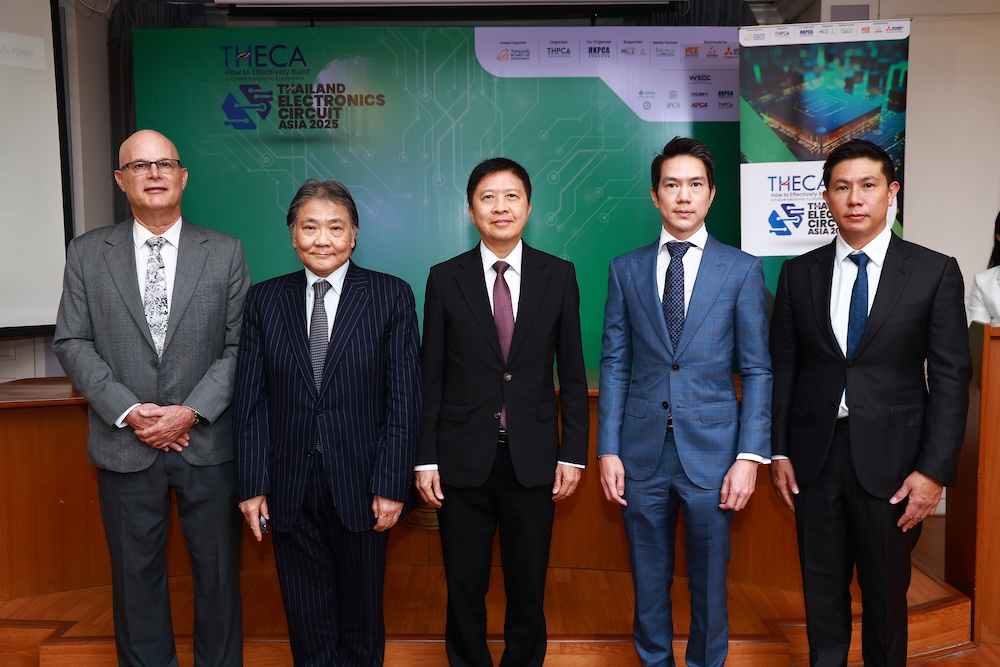

In response, the Thailand Electronics Circuit Center (TECC) — fully supported by the Ministry of Higher Education, Science, Research and Innovation (MHESI) and operated in collaboration with the Thailand Institute of Scientific and Technological Research (TISTR) — is playing a central role in tackling this critical issue.
As part of these efforts, THECA 2025 will host the “Job Fair PCB 2025”, an initiative designed to help bridge the talent gap and support the sustainable growth of Thailand’s PCB industry. Key components of this initiative include:
- Recruitment programs targeting new graduates and job seekers interested in entering the PCB and advanced electronics sectors.
- Job matching activities connecting candidates with leading companies across the PCB value chain.
- Reskilling and upskilling programs to support career switchers transitioning into high-demand roles within the industry.
- Seminars and workshops led by global technology leaders, highlighting future trends and innovations in PCB technologies.
The TECC remains committed to collaborating with government agencies, academia, and industry stakeholders to strengthen Thailand’s position as a regional hub for PCB manufacturing and innovation.
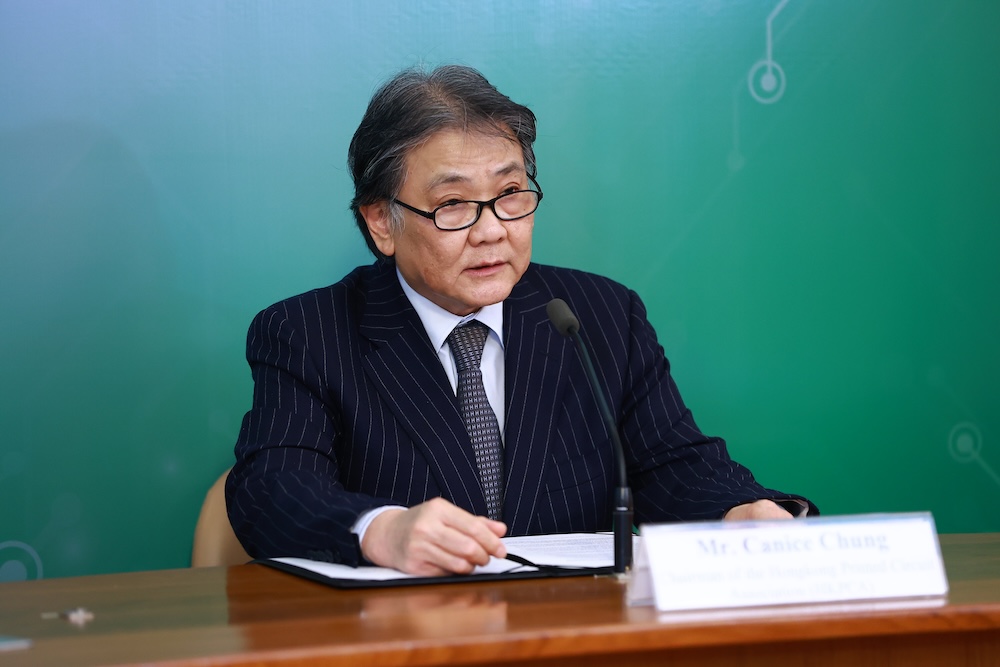
As global technology and supply chain strategies undergo profound shifts, Mr. Canice Chung, President of the HKPCA and co-organizer of THECA 2025, emphasized Thailand’s rising prominence in the global PCB and substrate landscape. With early investments in infrastructure, advanced manufacturing capabilities, and robust government support, Thailand has emerged as a strategic gateway to Asia’s electronics industry. He highlighted that the sector is entering a transformative era—driven by the growth of EVs, AI, robotics, and intelligent mobility—where regional supply chain connectivity will be key to resilience and innovation. Mr. Chung underscored that THECA 2025 provides a timely and strategic platform for global industry leaders to foster cross-border collaboration, co-develop next-generation technologies, and strengthen Asia’s role in the global electronics ecosystem.

Amid a rapidly evolving global landscape, Mr. David W. Bergman, Vice President of International Relations at IPC – the Global Electronics Association, pointed that the rise of the “China Plus One” strategy, Thailand is gaining traction as a preferred destination for large-scale fabrication and end-to-end EMS operations. He also outlined 4 transformative drivers reshaping the global electronics landscape: geopolitical tensions and supply disruptions, rapid tech innovation, tightening environmental regulations, and a growing skilled labor shortage. These dynamics are accelerating investment in sustainable production, automation, and talent development—strategic priorities where Thailand is well-positioned to lead.
THECA 2025 reinforces Thailand’s role as Asia’s emerging hub for electronics manufacturing through strong public-private collaboration and a focus on EVs, AI, and smart automation. More than just an exhibition, the event serves as a strategic platform to strengthen supply chains, develop talent, and build a sustainable ecosystem for the future of global electronics.
To secure your attendance, please complete your registration in advance athttps://thecaregistrations.jupinnothai.net/Registration/ChooseTypeRegis.aspx?codeInv=THECA6

